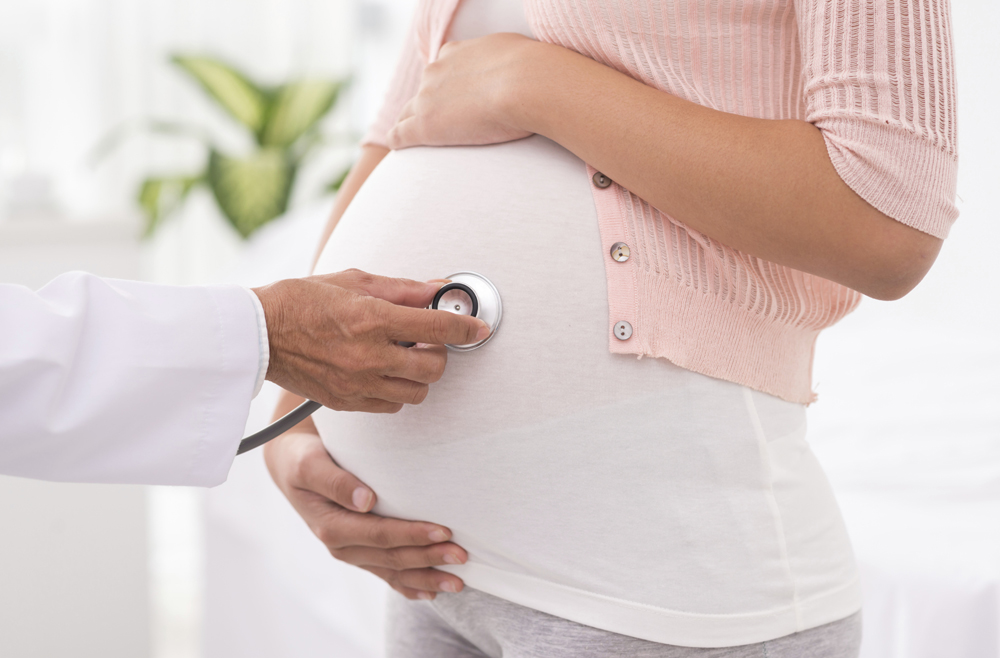
Meet Our Doctor
Dr. Rita Bang

Meet Our Doctor
Dr. Rita Bang
High Risk Pregnancy Specialist in Nagpur

High Risk Pregnancy Specialist
All pregnancies carry risks. The definition of a “high-risk” pregnancy is any pregnancy that carries increased health risks for the pregnant person, fetus, or both.
People with high-risk pregnancies may need extra care before, during, and after they give birth. This helps to reduce the possibility of complications.
High-Risk pregnancy cases, which can cause complications during pregnancy, or during childbirth, require a very different kind of care, which our specialists are trained to diagnose and treat.
Early and regular prenatal care helps many women have healthy pregnancies and deliveries without complications.
A critical part of managing high-risk pregnancies can ascertain the cause or the risk factors that can cause complications. High-risk pregnancy factors can broadly be split into four different categories. This include:
- Maternal age
- Lifestyle choices
- Pregnancy conditions
- Medical history
What causes high-risk pregnancy?
Factors that make a pregnancy high risk include:
- Preexisting health conditions.
- Pregnancy-related health conditions.
- Lifestyle factors (including smoking, drug addiction, alcohol abuse and exposure to certain toxins).
- Age (being over 35 or under 17 when pregnant).
What are the signs and symptoms of high-risk pregnancy?
Talk to your doctor right away if you experience any of the following symptoms during pregnancy, whether or not your pregnancy is considered high-risk:
- Abdominal pain that doesn’t go away.
- Chest pain.
- Dizziness or fainting.
- Extreme fatigue.
- The fetus’s movement stopping or slowing.
- Fever over 100.4°F.
- Heart palpitations.
- Nausea and vomiting that’s worse than normal morning sickness.
- Severe headache that won’t go away or gets worse.
- Swelling, redness or pain in your face or limbs.
- Thoughts about harming yourself or the fetus.
- Trouble breathing.
High-Risk Pregnancy Treatment
Depending on the risk factors that you are diagnosed with, high-risk pregnancy treatment will be prescribed. At Matruchhaya Spine And Women’s Care Clinic Hospital, we are well-equipped with state-of-the-art infrastructure and a highly skilled and experienced team of professionals to give you the best possible care for every type of high-risk pregnancy situation.
Gestational Diabetes – This condition can increase the risk of complications in pregnancy. However, you can have a healthy pregnancy and birth by following a diet and treatment plan prescribed by a doctor.
High blood pressure – During pregnancy, some changes to blood pressure medication may be recommended. Lifestyle changes such as limiting salt intake and regular exercise may also be prescribed for the treatment of this condition.
Pre-eclampsia – If you are experiencing mild symptoms, bed rest may be prescribed. You may also be asked to take vitamins E and C. Generally, this condition ends post-delivery.
- Letrozole and clomiphene – Letrozole and clomiphene help induce ovulation.
- Metformin – Metformin reduces insulin resistance and helps with weight reduction as well.
- Immature follicle aspiration – Helps reduce the number of immature follicles, improving ovulation.
How can I prevent a high-risk pregnancy?
You can reduce your risk of pregnancy complications by:
- Avoiding drugs and alcohol.
- Identifying potential health risks before getting pregnant. Tell your doctor about your familial and personal medical history.
- Maintaining a healthy body weight before pregnancy.
- Managing any preexisting health conditions you may have.
- Making sure any long-term medications are safe to take during pregnancy.
- Quitting smoking.
- Planning pregnancies between the ages of 18 and 34.
- Practicing safe sex.
Risk factors for a high-risk pregnancy?
Sometimes a high-risk pregnancy is the result of a medical condition present before pregnancy. In other cases, a medical condition that develops during pregnancy for either mom or baby causes a pregnancy to become high risk.
Specific factors that might contribute to a high-risk pregnancy include:
Advanced maternal age: Pregnancy risks are higher for mothers age 35 and older.
Lifestyle choices: Smoking cigarettes, drinking alcohol and using illegal drugs can put a pregnancy at risk.
Multiple pregnancy: Pregnancy risks are higher for women carrying twins or higher order multiples.
Overdue pregnancy: You might face additional risks if your pregnancy continues too long beyond the due date.
